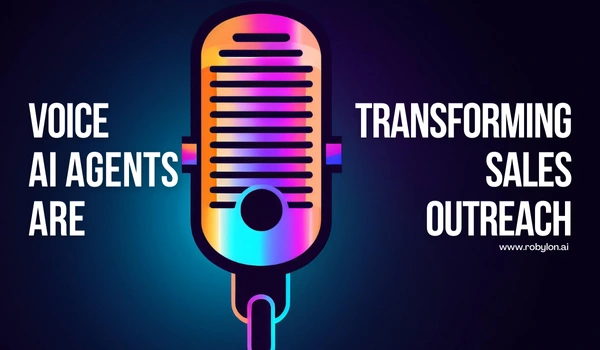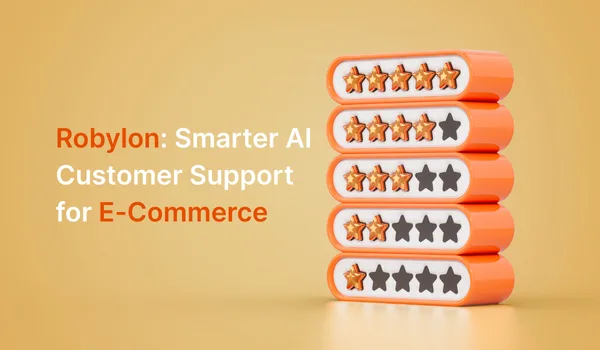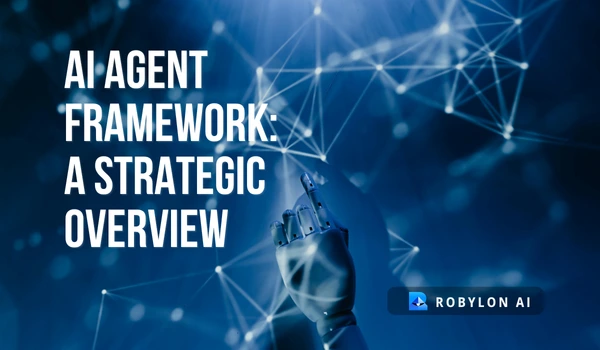TL;DR: Top AI Agent Builders You Should Try in 2026
AI agents are rapidly transforming how businesses operate, automating tasks, improving decision-making, and delivering smarter, real-time experiences. In 2026, AI agent builders make it easier than ever to design and deploy intelligent agents without deep technical skills.
From no-code tools like Robylon AI to developer frameworks and enterprise solutions such as Google Vertex AI Agents, businesses now have a wide range of platforms to choose from.
While building an AI Agent, pick no-code speed for drag-and-drop flows, prebuilt tools, and one-click deploy. Scale with enterprise control RBAC, observability, PII guardrails, and SLA support with pricing flexibility via pay-per-query, usage tiers, and free trials.
Introduction
AI agents are no longer futuristic concepts, they are becoming core components of modern business operations. From qualifying leads to resolving support tickets, AI agents can handle repetitive tasks at scale while delivering personalized, real-time experiences that drive efficiency and growth. As businesses strive to stay competitive in an increasingly digital-first world, building and deploying AI agents has become a strategic imperative.
That’s where AI agent builders come in. These platforms provide the frameworks, tools, and infrastructure needed to create intelligent, goal-oriented agents without requiring deep technical expertise. In this blog, we will explore the most powerful AI agent builders available in 2026, highlight their key features, and help you choose the right one to bring intelligent automation into your business. See how it works in your stack - Book a demo
What Are AI Agents?
AI agents are self-directed software programs that gather input from their environment, analyze it to make decisions, and carry out actions to meet specific goals. Unlike traditional automation tools or rule-based bots, AI agents are built on advanced technologies like large language models (LLMs), machine learning, and natural language processing (NLP), enabling them to adapt, reason, and improve over time.
Curious how agents differ from chatbots and copilots? Get a simple compilation with use cases you can deploy now.
What Is an AI Agent Builder?
An AI agent builder is a platform or framework designed to help users create, train, and deploy intelligent agents with minimal manual coding. These builders offer drag-and-drop interfaces, pre-built templates, and integration capabilities with CRMs, APIs, databases, and more.
They enable teams regardless of technical expertise to design agents that can manage conversations, execute business logic, retrieve data, and automate workflows in a scalable, efficient manner. Whether you are a startup building a virtual onboarding assistant or an enterprise looking to automate complex backend operations, these platforms make it easy to launch AI-powered agents that align with your goals.
Key Features of AI Agent Builders
AI agent builders empower users to develop autonomous systems that understand input, make decisions, and take action all with minimal or no coding. Some of the most essential features include
- Natural Language Understanding: Interprets user queries to understand intent and context.
- Self-Learning Capabilities: Uses ML to enhance performance over time based on previous interactions.
- Visual Interface: Drag-and-drop design tools simplify the creation of agents and their workflows.
- Multichannel Support: Enables deployment across websites, mobile apps, messaging platforms, and voice assistants.
- Pre-Built Templates & Modules: Helps users get started fast with common use-case blueprints.
- Easy Integration: Connects seamlessly to third-party APIs, databases, and enterprise tools.
- Built-in Testing & Monitoring: Offers tools to refine agent behavior and track performance.
These capabilities make AI agent builders ideal for automating everything from customer support to internal operations.
How AI Agent Builders Work
Behind the scenes, AI agent builders combine intelligent automation with modular development tools. Here is how most platforms function
- Input Understanding: NLP models interpret user input typed or spoken to identify intent and extract key data.
- Decision-Making Engine: ML or rule-based logic determines what action the agent should take next.
- Workflow Orchestration: Pre-configured steps and logic chains manage how tasks are executed.
- Tool and Data Integration: Agents access APIs, databases, and internal systems to retrieve or update information.
- Feedback and Adaptation: Agents learn from each interaction, fine-tuning their responses for accuracy and relevance.
Core Components of AI Agent Frameworks
Every AI agent builder relies on a framework, a structured system that enables consistent, autonomous operation. Here are the key architectural components that support intelligent agents.
These building blocks allow developers and teams to build scalable, efficient, and goal-driven AI solutions. Get clear notes on patterns, memory, tools, and orchestration- AI Agent Frameworks: A Strategic Overview
What to Look for in an AI Agent Builder
With a surge of new tools claiming to offer agent-building capabilities, it’s important to know what truly matters when selecting the right platform. Here's a checklist of features and considerations
- LLM & API Compatibility: Ensure the platform supports integrations with leading language models (ChatGPT, Claude, Gemini) and your existing tools.
- Cost Transparency: Understand the pricing structure, especially around API call usage, LLM credits, and optional integrations.
- Autonomous Workflow Execution: Look for platforms that can run recurring or scheduled tasks without manual input.
- Execution Speed: Evaluate how quickly the tool handles multi-step processes and integrations, especially under load.
- Data Privacy & Security: Choose platforms that don’t use your data to train models and comply with strict data protection standards.
- Customer Support & Community: Strong documentation, active communities (like Slack or Reddit), and responsive support can make or break your experience.
Ready to launch your own AI agent? Don’t miss our hands-on guide to building one from the ground up: Build an AI Agent
Top 7 AI Agent Builders for 2026
Below are the top platforms that are shaping how businesses design, deploy, and manage autonomous agents.
1. Robylon
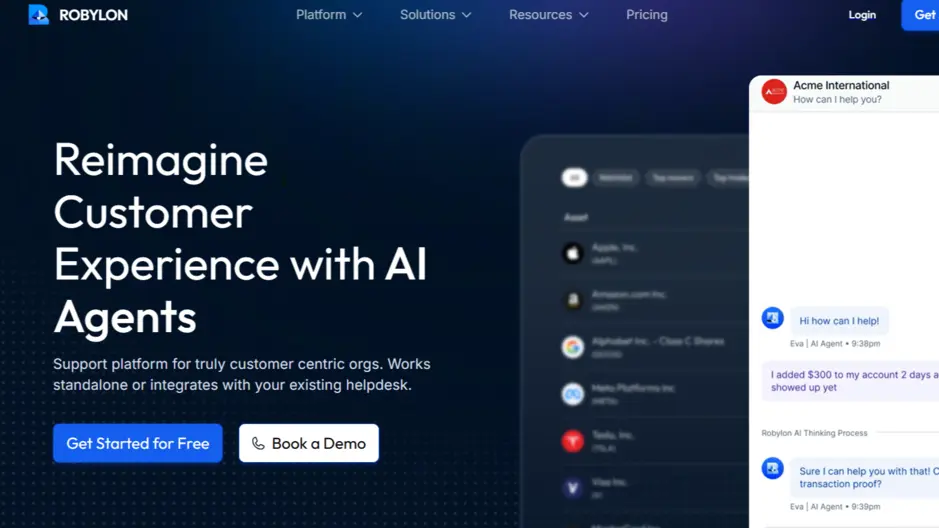
Company: Robylon
Best For: Support teams that want to automate 80–90% of customer queries.
Use Cases: Customer Support Automation, E-commerce & SaaS, Logistics & Fintech
Key Features
- 7-Day Deployment
- Omnichannel Integrations
- Built to dynamically understand user intent, trigger actions, and adapt to evolving workflows or product updates.
Pricing: Robylon follows a usage-based pricing model, you only pay for what you use, with no hidden fees or unnecessary commitments.
Why It Stands Out?
Robylon AI offers a unique combination of no-code agent building, high precision, and real-time adaptability. Its transparent, outcome-based pricing makes it a strong choice for businesses that want to improve customer experience and reduce operational burden without building an AI team from scratch.
2. LangChain
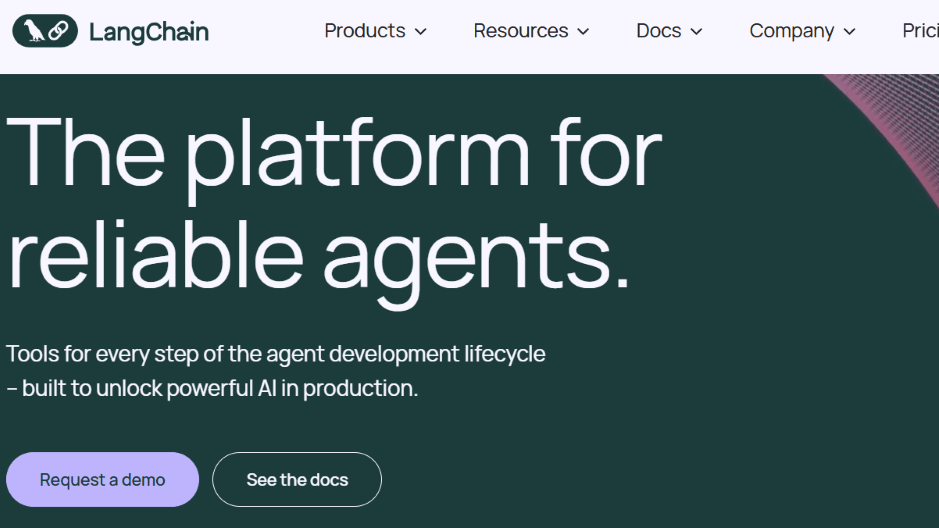
Company: LangChain (Open-source Framework)
Best For: Developers building LLM agents with memory, tool use, and autonomy
Use Cases: Retrieval-Augmented Generation (RAG), custom assistants, multi-modal agents, agent orchestration
Key Features
- Modular architecture for chaining LLMs with tools, memory, APIs, etc.
- Works with OpenAI, Cohere, Hugging Face, and Anthropic
- Built-in agent execution frameworks
- Plugin and third-party tool integration
Pricing: Offers free trial and further plan starts from $39/ month. Then, there are custom plans for Enterprise-grade.
Why It Stands Out?
LangChain is the backbone of most open-source LLM agents. If you're building autonomous systems with custom workflows or need your agents to use tools and access long-term memory, LangChain is a must-have in your tech stack.
3. Crew AI
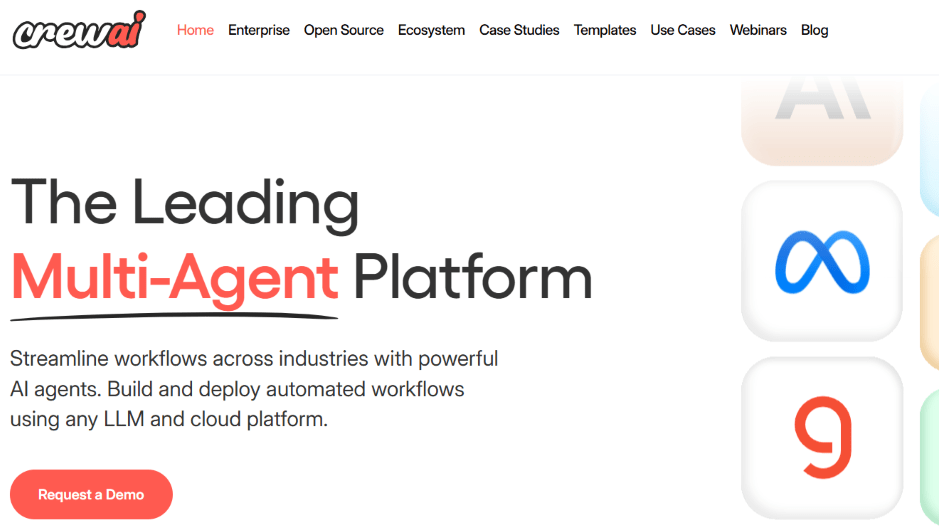
Company: Crew AI (Open-source Collective Agent Framework)
Best For: Teams deploying agent collectives for collaborative workflows
Use Cases: Multi-agent workflows, parallel task execution, AI collaboration
Key Features
- Role-based agent system
- Supports memory, tool use, and message passing between agents
- Seamlessly integrates with LangChain, OpenAI, and other libraries
- Decentralized task orchestration
Pricing: offers free trial, and further prices starts from $99/ month which goes up according to the plan for number of seats, executions and so on.
Why It Stands Out?
Crew AI enables the creation of agent collectives multiple LLM-powered agents that talk to each other, divide tasks, and work in sync. It’s built for advanced use cases that need specialized AI personas working together toward a goal.
4. AutoGPT
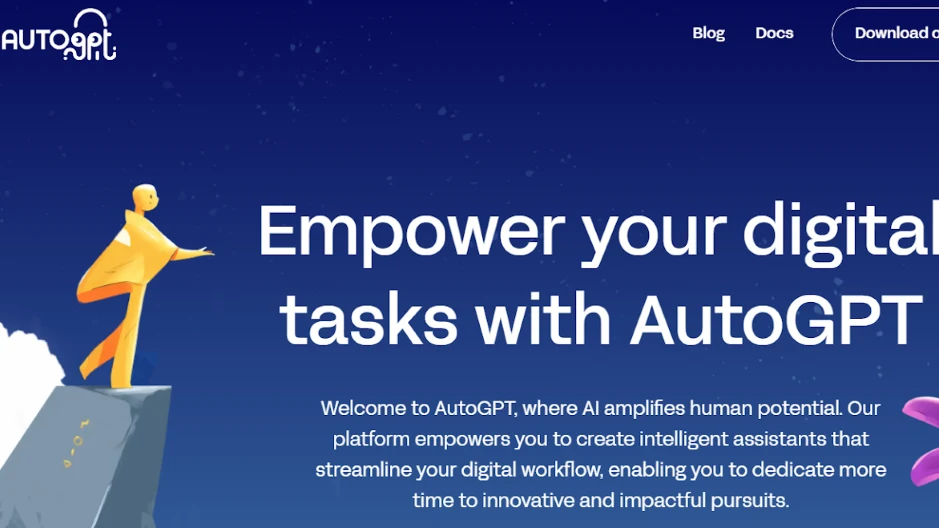
AutoGPT is an open-source framework that chains GPT-4 with autonomous planning and execution. It’s popular for automating long-form research, content creation, and data tasks.
Company: Open-source community project - AutoGPT
Best for: Self-directed research and task agents
Use Cases: Long-form content generation, automated report generation, exploratory workflows
Key Features
- Self-prompting and recursive planning
- Plugin support for browser, file system, and APIs
- Minimal supervision after task initialization
Pricing: AutoGPT currently offers Basic, Pro, and Advanced subscription plans starting at $19/month or $190/year, and also includes a free tier with limited usage.
Why It Stands Out?
AutoGPT demonstrates what’s possible when agents think and execute without constant human input.
5. Google Vertex AI Agents
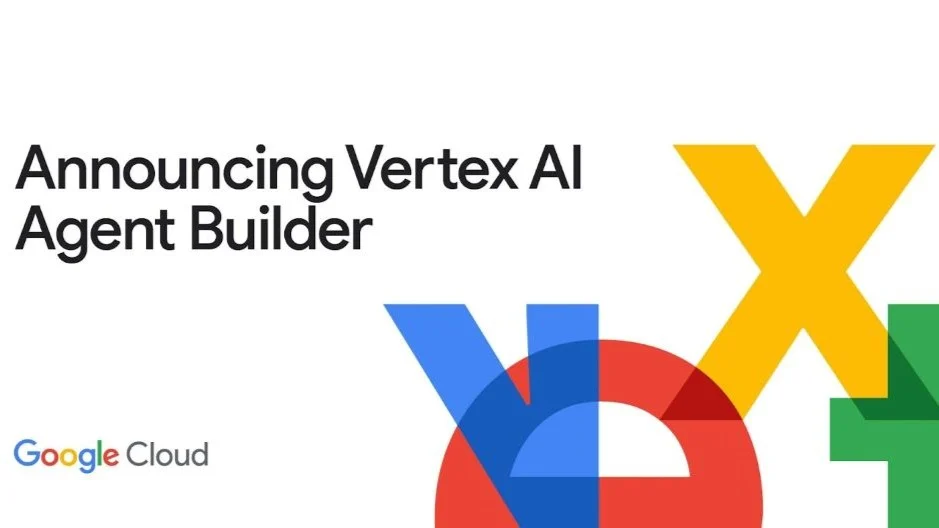
Vertex AI Agents empower companies to create tailored AI solutions by combining Google Cloud infrastructure with pre-trained models.
Company: Google Cloud - enterprise-grade AI and cloud solutions
Best for: Enterprise-scale AI workflows on Google Cloud
Use Cases: Customer service automations, data-rich enterprise applications
Key Features
- Custom model training with enterprise-level scalability
- Built-in orchestration with GCP tools for multi-agent workflows
- Search and generative answer support
- Seamless access to Google’s AI ecosystem
Pricing: It follows a usage-based pricing model, making it ideal for scaling.
- Chat/query interactions: ~$12 per 1,000 queries
- Web or vector search: $2–$8 per 1,000 searches, depending on features
- Agent runtime compute: Roughly $0.01 per node-hour (for basic deployment)
- Voice interactions: About $0.002 per second of audio processed
- Starter credits: $1,000 in free Google Cloud credits for new users to explore.
Why It Stands Out?
It's the go-to platform for businesses already within Google Cloud looking to operationalize AI at scale.
6. Voiceflow

Company: Voiceflow
Best For: Product and support teams designing chat and voice agents
Use Cases: IVRs, chatbots, customer service flows, UX prototyping
Key Features
- Drag-and-drop conversation builder
- LLM + classic logic hybrid design
- API, database, and backend integrations
- Collaboration tools and versioning
Pricing
- Free plan with limited features
- Pro and Team plans from ~$50/month
- Enterprise pricing on request
Why It Stands Out?
Voiceflow makes conversation design feel like UI/UX design. With a visual canvas and robust logic engine, it empowers teams to ship high-quality agents—without needing to code or rely on devs for every tweak.
7. AgentOps
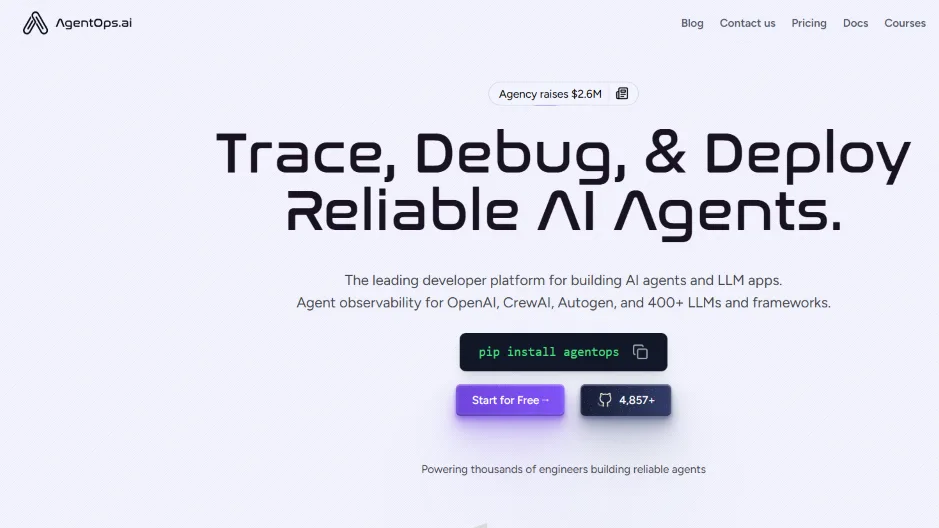
Company: AgentOps
Best For: Teams running AI agents in production that need monitoring, safety, and control
Use Cases: Agent lifecycle management, observability, safety debugging
Key Features
- Real-time logs, performance metrics, and behavior analysis
- Agent versioning and rollback
- Compatibility with LangChain, Crew AI, and other agent frameworks
- Alerting and debugging tools
Pricing: Custom pricing based on team size and usage
Why It Stands Out?
AgentOps solves the DevOps problem for AI agents. It gives visibility into what your agents are doing, helps catch failures early, and ensures safety and version control in live environments.
How to Choose the Right AI Agent Builder in 2026
Not all agent builders are created equal and in 2026, picking the right one can directly impact your automation ROI. Whether you are a startup deploying customer support agents or an enterprise scaling multi-agent workflows; No-code tools like Robylon AI are ideal for fast deployment without engineering heavy-lifting, while LangChain caters to developers building deeply customized workflows. Platforms like Google Vertex AI Agents offer cloud-native power for enterprises that need scalable infrastructure and deep integration.
The future of automation is agentic, choose the builder that aligns with your goals, scale, and technical expertise.
Start Building AI Agents with Robylon
Building and deploying AI agents can transform how your business handles customer interactions, support queries, and backend operations. But the true success of your AI automation journey depends on choosing the right platform, one that’s fast, scalable, and built for real-world use.
Robylon is built to do just that. With its powerful no-code agent builder and plug-and-play integrations, Robylon enables your team to launch intelligent AI agents in as little as 7 days, no deep technical expertise required. See what changed after rollout, covering time to value, workflows, and KPIs: Customer stories
With Robylon, you can;
- Automate 80-90% of support queries across chat, email, voice, and social channels without sacrificing personalization.
- Seamlessly connect with tools like Zendesk, Freshdesk, WhatsApp, Shopify, Salesforce, and more, creating unified customer experiences across platforms.
- Design dynamic workflows that adapt to changing business logic, product updates, or customer behavior.
- Scale effortlessly as your business grows, with transparent, per-resolved-query pricing that aligns with performance and ROI.
Whether you are a SaaS startup aiming to reduce ticket volumes or an enterprise in need of omnichannel automation, Robylon gives you the tools to drive efficiency, customer satisfaction, and revenue all while reducing operational overhead.
Want to see what intelligent automation can do for you?
Get a custom AI agent tailored to your business goals with Robylon.
FAQs
Are open-source tools viable for building real AI agents?
Yes. LangChain, Crew AI, and AutoGPT are widely used in production settings and offer high flexibility for custom builds
What pricing models do these platforms follow?
Platforms offer different pricing strategies like; Robylon uses a usage-based model. Vertex AI charges per query or compute. Voiceflow offers tiered subscriptions. Open-source tools like AutoGPT are free to use but require your own infrastructure.
Will these tools integrate with our APIs and CRMs?
Most modern platforms like Robylon AI and LangChain support robust API and CRM integrations out of the box.
Can I build agents that collaborate or divide tasks?
Crew AI is designed specifically for multi-agent systems that coordinate and share work through defined roles.
What’s a good option for enterprise deployment?
Google Vertex AI Agents offer enterprise-grade scalability, integration with Google Cloud tools, and usage-based pricing.
Are there options for managing multiple agents in production?
Yes. AgentOps provides tools for monitoring, debugging, and maintaining live AI agents at scale.
Which platforms are best suited for developers?
LangChain, Crew AI, and AutoGPT offer open-source frameworks and developer tools for building fully customized agents.
Can I build agents without coding?
Yes. Tools like Robylon and Voiceflow offer no-code interfaces designed for non-technical users.
How is an AI agent builder different from a chatbot platform?
AI agent builders support autonomous decision-making, tool use, and dynamic workflows. Chatbot platforms are often limited to scripted Q&A.
What features should I look for in an AI agent builder?
Core features to prioritize include: natural language understanding, tool/API integration, multistep task execution, real-time monitoring, and support for memory or context handling.





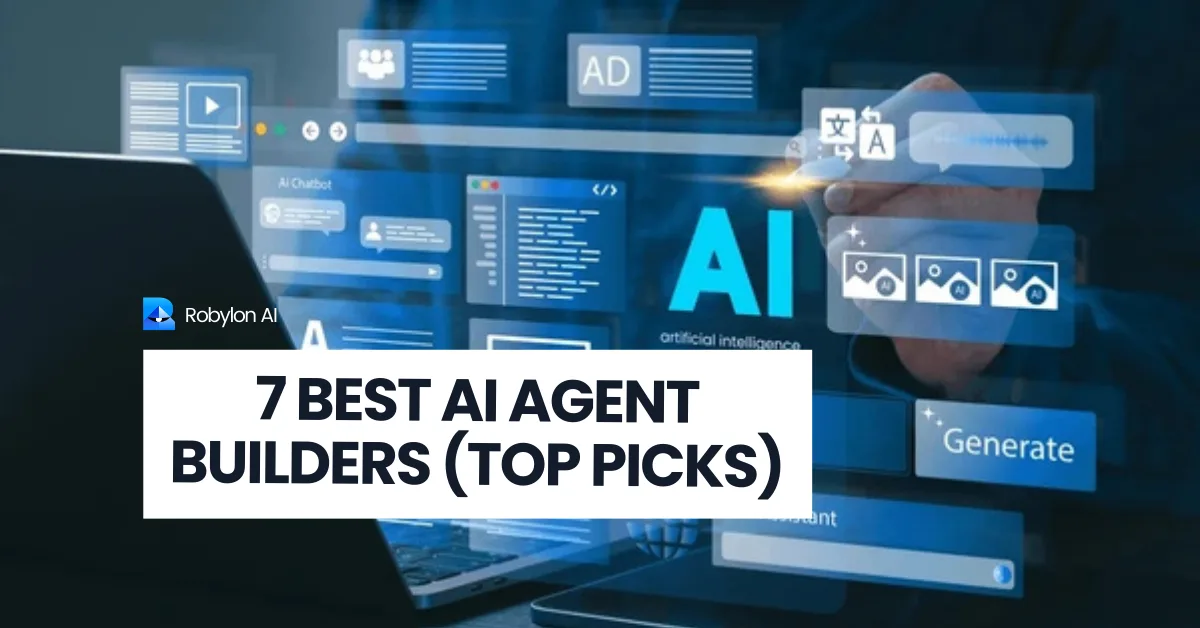

.png)

